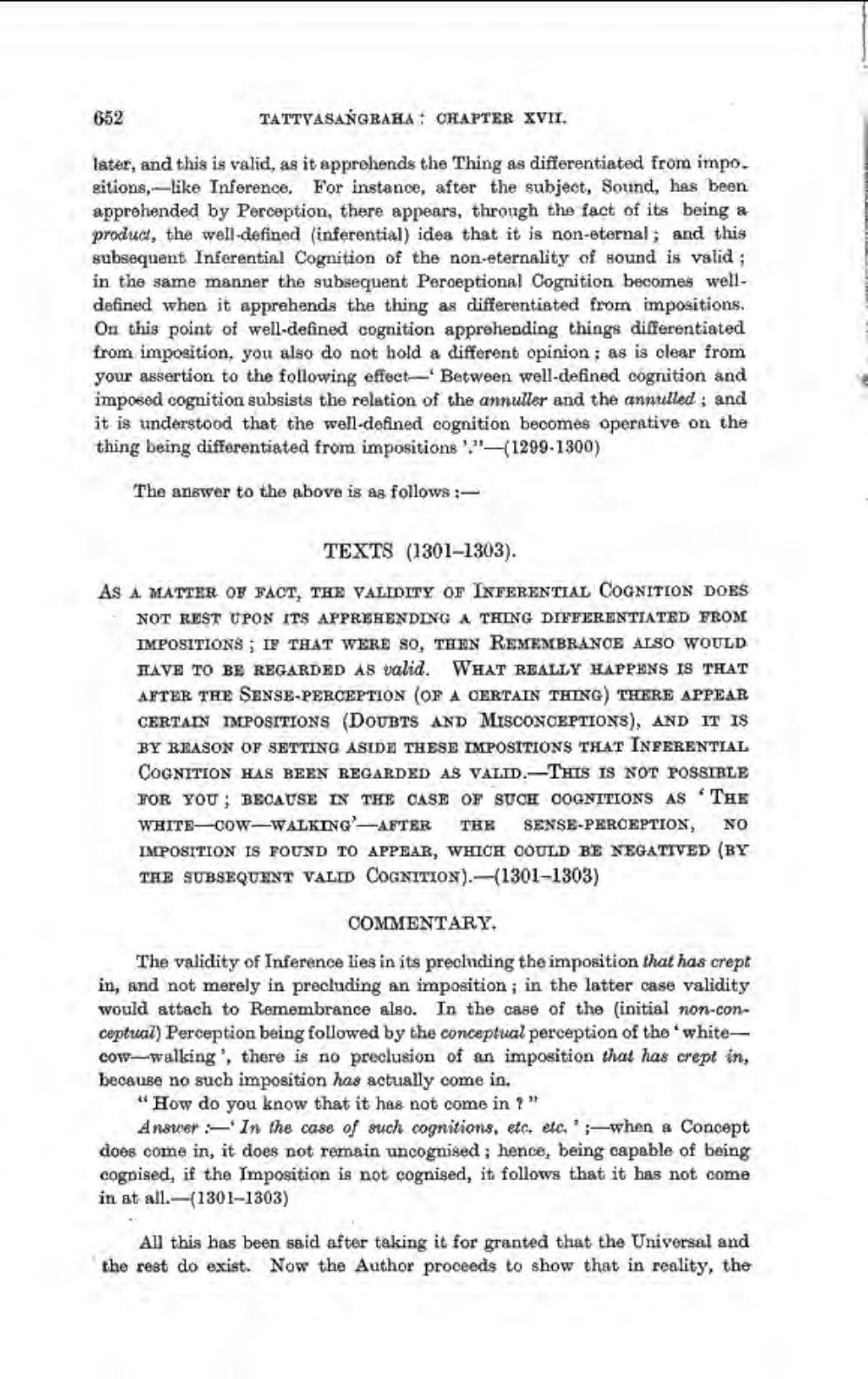________________
652
TATTYASANGRAHA - CHAPTER XVII.
later, and this is valid, as it apprehends the Thing as differentiated from impo. sitions,-like Inference. For instance, after the subject, Sound, has been apprehended by Perception, there appears, through the fact of its being a product, the well-defined (inferential) idea that it is non-eternal; and this subsequent Inferential Cognition of the non-eternality of sound is valid ; in the same manner the subsequent Peroeptional Cognition becomes welldefined when it apprehends the thing as differentiated from impositions. On this point of well-defined cognition apprehending things differentiated from imposition, you also do not hold a different opinion; as is clear from your assertion to the following effect Between well-defined cognition and imposed cognition subsists the relation of the annuller and the annulled; and it is understood that the well-defined cognition becomes operative on the thing being differentiated from impositions'."-(1299-1300)
The answer to the above is as follows:
TEXTS (1301–1303). As A MATTER OF FACT, THE VALIDITY OF INFERENTIAL COGNITION DOES
NOT REST UPON ITS APPREHENDING A THING DIFFERENTIATED FROM IMPOSITIONS ; IF THAT WERE SO, THEN REMEMBRANCE ALSO WOULD RAVE TO BE REGARDED AS valid. WHAT REALLY HAPPENS IS THAT AFTER THE SENSE-PERCEPTION (OF A CERTAIN THING) THERE APPEAR CERTAIN IMPOSITIONS (DOUBTS AND MISCONCEPTIONS), AND IT IS BY REASON OF SETTING ASIDE THESE IMPOSITIONS THAT INFERENTIAL COGNITION HAS BEEN REGARDED AS VALID.-THIS IS NOT POSSIBLE FOR YOU; BECAUSE IN THE CASE OF SUCH COGNITIONS AS THE WHITE-COW-WALKING'-AFTER THE SENSE-PERCEPTION, NO IMPOSITION IS FOUND TO APPEAR, WHICH COULD BE NEGATIVED (BY THE SUBSEQUENT VALID COGNITION).-(1301-1303)
COMMENTARY
The validity of Inference lies in its precluding the imposition that has crept in, and not merely in precluding an imposition; in the latter case validity would attach to Remembrance also. In the case of the initial non-conceptual) Perception being followed by the conceptual perception of the whitecow-walking, there is no preclusion of an imposition that has crept in, because no such imposition has actually come in.
"How do you know that it has not come in ?"
Answer - In the case of such cognitions, etcetc. ' ;—when & Concept does come in, it does not remain uncognised; hence, being capable of being cognised, if the Imposition is not cognised, it follows that it has not come in at all.—(1301-1303)
All this has been said after taking it for granted that the Universal and the rest do exist. Now the Author proceeds to show that in reality, the




